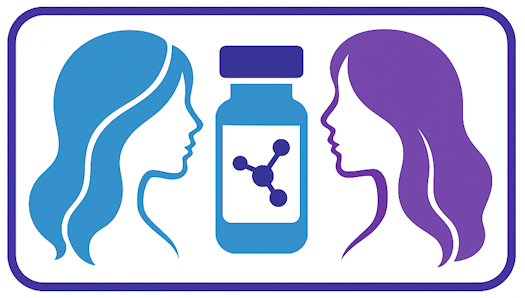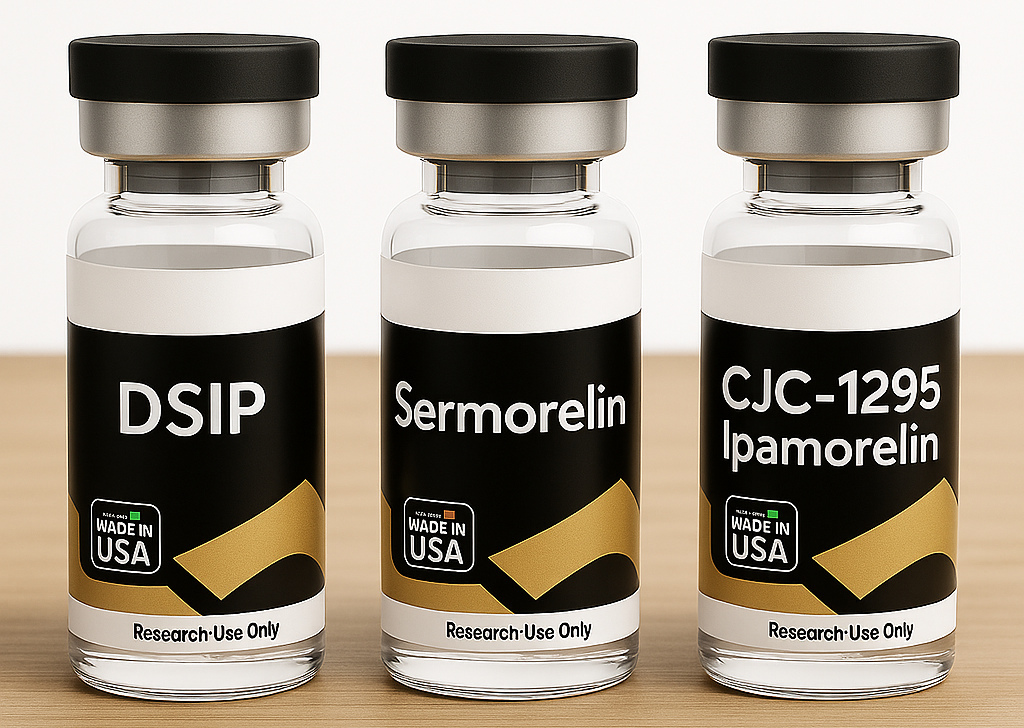Sleep challenges affect millions of people worldwide, leading many to seek natural solutions for better rest. Peptides for sleep represent a groundbreaking approach to achieving quality rest, and are part of a wider field of peptides for women.
These small chains of amino acids act as molecular messengers in the body, orchestrating various biological functions from hormone regulation to immune system responses. The human body naturally produces peptides, making them a biocompatible option for sleep enhancement.
Quality sleep is essential for good health. It affects our thinking skills and helps our bodies recover, including physical recovery often supported by peptides for female muscle growth. When we don’t sleep well, our immune system weakens, our memory suffers, and we become more likely to develop long-term health issues.
Sleep improvement peptides work by targeting specific pathways in the body’s natural sleep-wake cycle. These compounds can enhance melatonin production, reduce stress hormones, and promote deeper sleep phases. Unlike conventional sleep aids, peptides support the body’s inherent sleep mechanisms without creating dependency or causing next-day grogginess.
1. Delta Sleep-Inducing Peptide (DSIP)
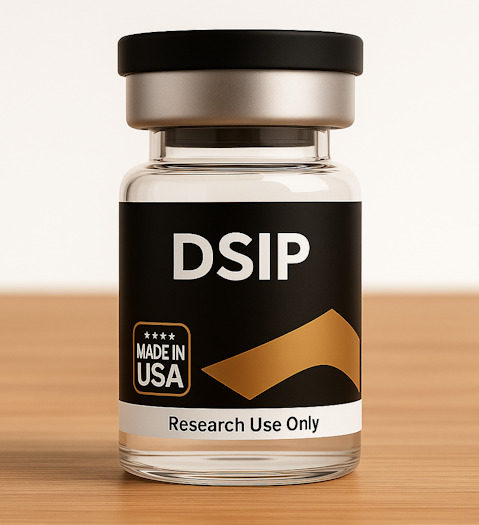
Delta Sleep-Inducing Peptide (DSIP) is a natural neuropeptide found in the brain during deep sleep stages. It is made up of nine amino acids that work together to control sleep patterns and promote restorative sleep.
How DSIP Works
DSIP affects the brain in several ways, directly impacting the sleep-wake cycle:
- Crossing the Blood-Brain Barrier: DSIP can pass through the protective barrier that separates the bloodstream from the brain.
- Interacting with Neurotransmitter Systems: Once inside the brain, DSIP interacts with neurotransmitters, which are chemical messengers that regulate sleep.
- Targeting GABA Receptors: DSIP has a strong affinity for GABA receptors, which are responsible for inhibiting neural activity and promoting relaxation.
The Effects of DSIP on Sleep
Research indicates that DSIP (Delta Sleep-Inducing Peptide) has a notable impact on sleep patterns. One of its primary effects is a reduction in the time it takes to fall asleep—by an average of 15 to 20 minutes. Additionally, DSIP significantly extends the duration of slow-wave sleep phases, which are essential for physical recovery with peptides for women over 40 and memory consolidation. Studies have shown that these phases can be lengthened by as much as 40% with DSIP use.
Benefits of DSIP Beyond Sleep Improvement
Beyond its influence on sleep onset and depth, DSIP provides several additional benefits. Many users report experiencing deeper, more restorative sleep cycles. It also appears to minimize nighttime disruptions, leading to fewer awakenings and more continuous rest. These improvements in sleep quality often translate to enhanced cognitive performance and greater alertness throughout the day.
Recommended Dosage Protocol
The standard protocol for DSIP administration includes an initial dose of 100 to 200 micrograms taken before bedtime. This is typically done three to seven times per week over a cycle lasting eight to twelve weeks. DSIP is usually administered via subcutaneous injection for optimal absorption and effectiveness.
For optimal results, it is recommended to administer DSIP 30-45 minutes before your desired sleep time. However, it’s important to note that each person’s response to DSIP may vary, so adjustments to the dosage may be necessary based on individual sleep patterns and needs.
The Importance of Medical Supervision
It is crucial to have medical supervision throughout your DSIP therapy. This ensures that proper administration techniques are followed and that the dosage is monitored effectively for maximum benefits. Regular assessments of sleep quality through sleep diaries or other methods will also help track progress and make any necessary adjustments to the treatment plan.
DSIP is easily one of the best peptides for sleep on the market today.
2. CJC 1295 Combined with Ipamorelin
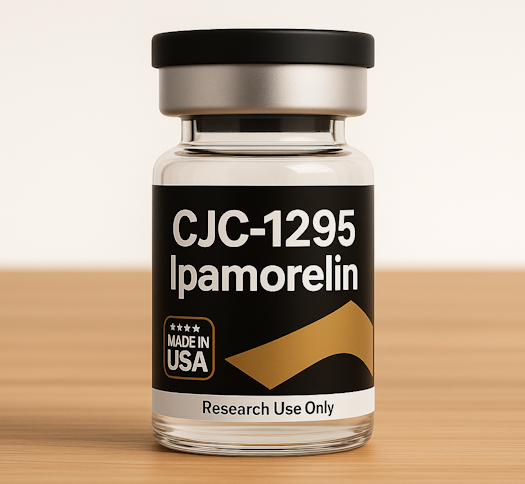
The powerful combination of CJC 1295 and Ipamorelin represents a significant advancement in peptide therapy for sleep enhancement. These two growth hormone-releasing peptides create a synergistic effect that amplifies their individual benefits when used together.
CJC 1295 acts as a growth hormone-releasing hormone (GHRH) analog, extending the natural pulsatile release of growth hormone. Ipamorelin, a selective growth hormone secretagogue, stimulates the pituitary gland to release growth hormone while maintaining the body’s natural growth hormone rhythm. This dual-action approach creates a more sustained and balanced hormonal response.
The Sleep Benefits of CJC 1295/Ipamorelin
The mechanism behind this peptide combination’s sleep-enhancing properties lies in its ability to optimize the body’s growth hormone production. When administered together, these peptides trigger the pituitary gland to release human growth hormone (HGH) during the body’s natural peak production times, typically during deep sleep phases. This enhanced HGH production leads to improved sleep architecture, with users reporting deeper, more restorative sleep patterns.
Research indicates that the CJC 1295/Ipamorelin combination offers benefits beyond sleep improvement. Users experience enhanced recovery from physical activity, improved muscle tone, and accelerated fat metabolism with weight loss peptides for women. The peptides’ ability to regulate growth hormone levels also supports cognitive function and emotional well-being, creating an optimal environment for quality sleep.
Recommended Dosage and Administration
The recommended protocol for CJC 1295/Ipamorelin typically involves subcutaneous injection before bedtime. A standard dosage ranges from 200-300 mcg of each peptide, administered 5-7 days per week. The timing of administration is crucial, taking the combination approximately 30 minutes before sleep maximizes its sleep-enhancing effects.
Why CJC 1295/Ipamorelin Stands Out
This peptide duo stands out for its selective action on growth hormone release. Unlike other peptides that might affect multiple hormone systems, CJC 1295 and Ipamorelin maintain specificity in their effects. This targeted approach minimizes potential side effects while maximizing benefits for sleep quality.
The combination’s effectiveness builds over time, with users typically reporting noticeable improvements in sleep quality within 2-4 weeks of consistent use. The peptides’ natural approach
3. Sermorelin
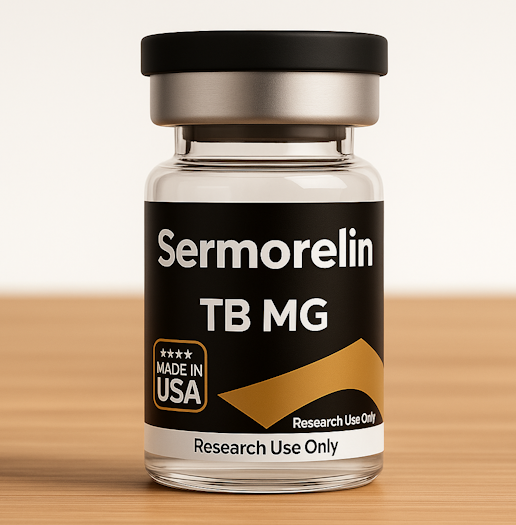
Sermorelin is another one of the best peptides for sleep that mimics the body’s natural growth hormone-releasing hormone (GHRH). This remarkable compound stimulates the pituitary gland to produce and release human growth hormone (HGH), creating a cascade of benefits that extend to sleep quality enhancement.
How Sermorelin Works
The peptide’s ability to optimize natural hormone balance plays a crucial role in establishing healthy sleep patterns. By promoting the release of HGH during the deep sleep phases, Sermorelin helps maintain the body’s circadian rhythm and supports the natural sleep-wake cycle supported by peptides for menopause. Users often report experiencing deeper, more restorative sleep within the first few weeks of treatment.
Benefits of Sermorelin for Sleep
When compared to other GH-related peptides, Sermorelin demonstrates a notable safety profile. Its selective action on the pituitary gland means it maintains the body’s natural HGH production patterns rather than introducing external hormones. This targeted approach reduces potential side effects and makes it a preferred choice for long-term sleep enhancement therapy.
How to Use Sermorelin
A typical Sermorelin treatment protocol involves daily subcutaneous injections, usually administered before bedtime to align with the body’s natural HGH production rhythm. The recommended dosage ranges from 200 to 300 mcg per day, though individual needs may vary based on specific health conditions and treatment goals.
Most users begin noticing improvements in sleep quality within 3-4 weeks of consistent use. The full benefits of Sermorelin therapy typically manifest after 3-6 months of regular administration. During this period, patients often experience progressive improvements in sleep onset, duration, and overall sleep architecture.
Additional Benefits of Sermorelin
The peptide’s effectiveness extends beyond sleep enhancement. Regular Sermorelin use supports cellular repair processes that occur during deep sleep stages, contributing to improved recovery and regeneration. This dual action makes it particularly valuable for individuals seeking comprehensive sleep solutions while maintaining their body’s natural hormone production patterns.
Additional Peptides Supporting Sleep Quality
Selank stands out as a remarkable peptide for sleep enhancement through its unique anxiolytic properties. This synthetic peptide works by modulating GABA receptors in the brain, creating a natural calming effect without sedation. Research indicates Selank’s ability to reduce anxiety-related sleep disturbances while maintaining cognitive function.
Semax brings another dimension to sleep quality improvement. This peptide influences neurotransmitter levels, particularly serotonin and dopamine, creating optimal conditions for restful sleep. Its neuroprotective properties help regulate sleep-wake cycles by supporting healthy brain function during both active and rest periods.
These peptides demonstrate effectiveness in addressing sleep issues linked to stress and anxiety with peptides for female libido. Selank users report easier sleep initiation, while Semax supplementation often results in more sustained sleep patterns. The combination of their anxiolytic effects with cognitive enhancement properties makes them valuable alternatives for individuals seeking natural sleep solutions.
Both peptides work through gentle modulation of the body’s natural sleep mechanisms, offering support without the common side effects associated with traditional sleep medications.
Safety, Customization, and Considerations in Peptide Therapy for Sleep Enhancement
Peptide therapy for sleep enhancement requires careful medical supervision to ensure optimal results and safety. A qualified healthcare provider should conduct thorough health assessments, including blood work and sleep studies, before initiating any peptide protocol. These evaluations help identify potential contraindications and establish baseline measurements for tracking progress.
The non-addictive nature of peptides sets them apart from traditional sleep medications. Unlike conventional sedatives that can create physical dependence, peptides work by optimizing the body’s natural sleep-regulatory systems. This characteristic makes them a promising alternative for individuals seeking long-term sleep solutions without the risk of dependency.
Customization stands as a cornerstone of effective peptide therapy. Each person’s sleep challenges, medical history, and biochemistry are unique. A personalized approach considers factors such as:
Health Parameters for Customization:
- Current sleep patterns and disturbances
- Existing medical conditions
- Hormone levels
- Medication interactions
- Lifestyle factors
- Age and gender considerations
Dosing protocols require regular monitoring and adjustment based on individual responses. Some patients might experience optimal results with lower doses, while others may need gradual increases under medical supervision. Regular check-ins with healthcare providers enable fine-tuning of protocols to maximize benefits while maintaining safety standards.
Conclusion
Peptides are a promising option for improving sleep naturally, providing a scientifically-backed alternative to traditional sleep medications. The specific effects of DSIP, CJC 1295 with Ipamorelin, and Sermorelin show the potential of peptide therapy in addressing sleep issues at their root cause.
Before adding peptides to your sleep improvement plan, it’s important to consult with a qualified healthcare provider. They can evaluate your individual needs, medical history, and current medications to develop a personalized approach that maximizes benefits while minimizing risks.
Improving sleep through peptide therapy requires patience, dedication, and professional support. When combined with established sleep hygiene practices and lifestyle changes, peptides can be a valuable tool in your pursuit of restful sleep. Take the first step by scheduling an appointment with a healthcare professional experienced in peptide therapy to see if these compounds can help you achieve your sleep goals.
